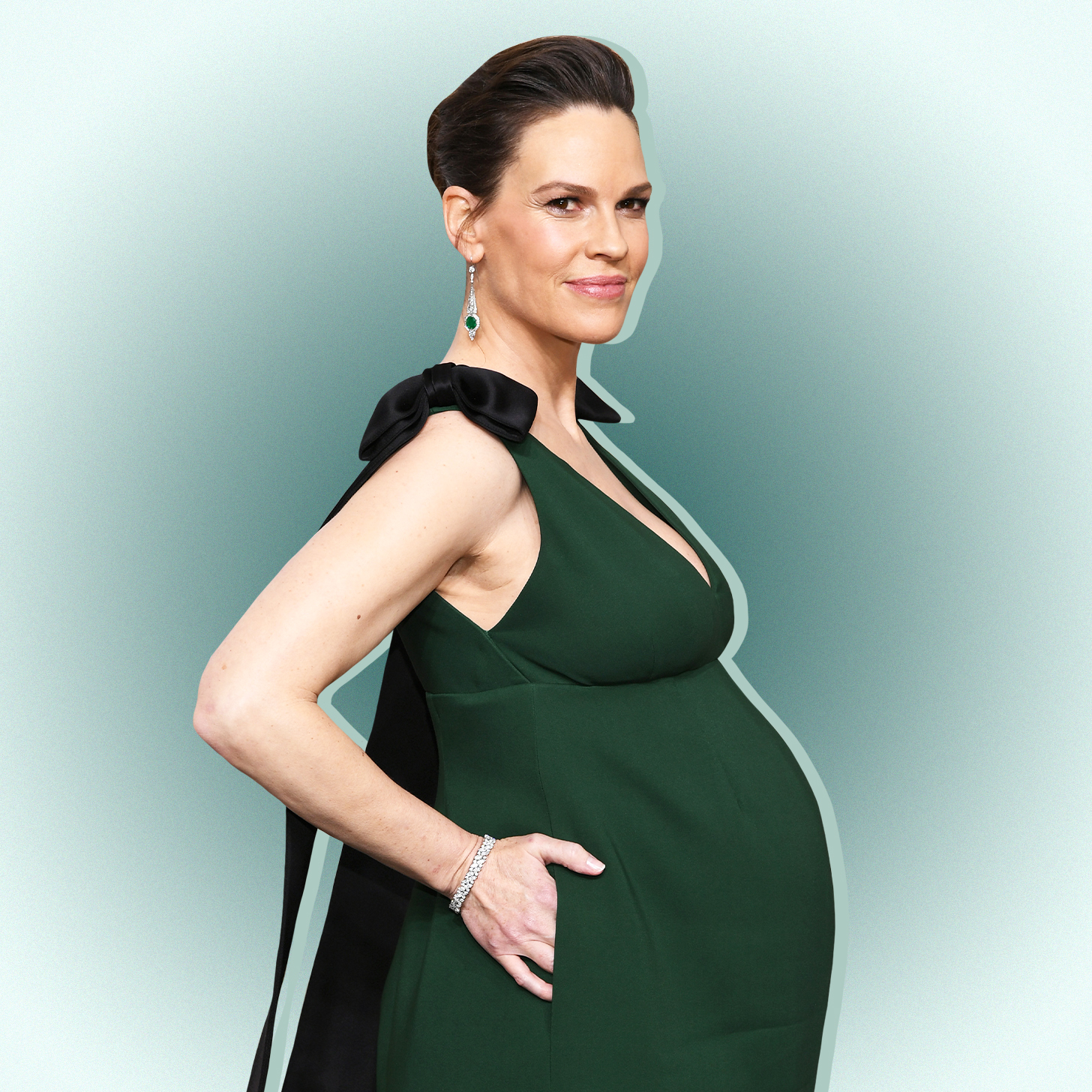
- POPSUGAR Australia
- Family
- Like Hilary Swank, I Gave Birth in My 40s – and I’m Sick of Older-Mom Bias
Like Hilary Swank, I Gave Birth in My 40s – and I’m Sick of Older-Mom Bias

Congratulations are in order for Hilary Swank, who welcomed twins on April 9. But if my experience is anything to go off of, Swank may also be on the receiving end of plenty of judgment as well. That’s because, in case you missed the headlines trumpeting the news, Swank was 48 when she gave birth.
I, too, had a baby in my 40s – in my case, just a few weeks before I turned 42. And I’ve heard it all from gobsmacked folks who couldn’t believe I could take a break from sipping prune juice long enough to give birth at my “advanced maternal age.”
“What was that like?” one acquaintance asked, upon learning both my age and my new-mom status. Um, like giving birth, I wanted to reply.
Another acquaintance: “You’ll be in your 60s by the time he goes to college.” My internal monologue: Amazing math skills.
The comments didn’t start once I had my baby, either. I also received countless dire warnings while expecting about the risks associated with “geriatric pregnancies.” Not just at my doctor’s office, either.
I want to be super clear that there are risks to consider when you’re an older pregnant person. Yes, there are risks involved with being pregnant at any age, but many increase after age 35 or so.
I also think it’s important to acknowledge that sometimes people my age require interventions to get pregnant (although I also firmly believe it’s incredibly rude to ask anyone if they required such intervention; and believe me, I got some of those questions from people who knew I was over 40 when I conceived). I’m not trying to deny medical reality, or suggest that there’s nothing noteworthy about someone who becomes a parent in their 40s.
What I take issue with is how so much of society reacts to people who have babies in their 40s.
These days, the accepted mantra is that women can do anything, at any age. We love to celebrate women who start businesses, become writers, and win Oscars only after they enter or pass that tenuous period known as “middle aged.” We’re quick to point out that women over 40 do CrossFit, fall in love, have sex, look sexy, don’t just follow but set current fashion and beauty trends.
But often, people in their 40s who are or who want to be new parents are treated to pure, unbridled judgment, sometimes bordering on disdain. Some people seem to think that there’s a perfect time to have a baby, and that anyone who has one over the age of 40 aren’t “doing it right.”
Even baby announcement headlines can contain some judge-y subtext. When a celebrity gives birth in their 20s or 30s, the headline simply announces the happy news; when a celeb gives birth in their 40s, the headline often works in their age. Can’t we leave it at “congratulations”?
Not all reactions are negative, of course. I’ve met plenty of people who are purely happy for me, and others who seem to feel a sense of awe at my journey. (The latter still can make me feel like an exhibit at a zoo, but is somewhat preferable to disdain.)
I’m also aware that even the negative responses could stem from someone’s own experiences. I have tremendous compassion and understanding for people who’ve had difficulty conceiving or had very difficult pregnancies, who might be more inclined to react to people who are able to have children in their 40s.
But, while I don’t presume to speak for all parents in this age group, as a 42-year-old new parent, my only wish was that the world treat me the same as other pregnant people or new parents. I knew I was over 40, and didn’t need anyone to remind me. And I could never understand why other people seemed to care so much about how others choose to parent, whether it was about when someone becomes a parent or if they choose to breastfeed.
So, to anyone who has a problem with older parenthood – or people who just want to remind me, again, that I’ll be 60 when my kid goes to college – I have one thing to say: I can’t hear you with these ancient ears. You’ll have to speak up.


